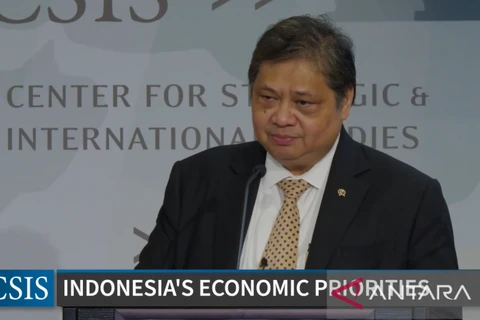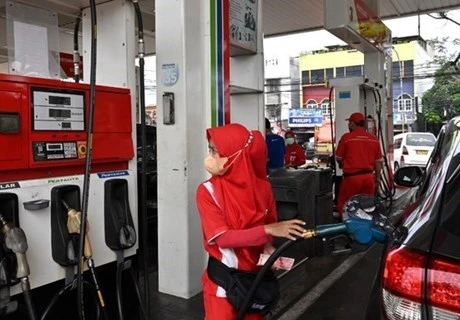Jakarta (VNA) - Indonesia's state-owned oil company, Pertamina, has recently launched its first underground carbon injection tests, as the state energy firm is exerting efforts to cut carbon emissions and increase oil output.
With a goal of cutting its greenhouse gas emissions by 30% by 2030, Pertamina has been exploring carbon capture, utilisation and storage (CCUS) technology with several partners to offset emissions and boosts its oil and gas production.
Implementation of CO2 injection will become Pertamina's backbone in increasing oil and gas production and sustainability, Pertamina official Oki Muraza said in a statement.
Pertamina worked with Japan Oil, Gas and Metals National Corporation (JOGMEC) to carry out 'huff and puff' tests in its Jatibarang field in West Java province, by injecting carbon into an oil well for several days.
Based on the simulation results, oil and gas production will increase by around 30-40%, but in a few days it will decrease again and will be injected again. And so on, Tutuka Ariadji, director general of oil and gas at the Indonesia Ministry of Energy and Mineral Resources, said in a separate statement, adding that the test result would be monitored until year end.
The energy ministry is drafting a regulation on carbon capture and storage (CCS) and CCUS implementation so that oil and gas operators may install carbon capture facilities in their operations and might grant incentives to make the projects commercially viable./.
With a goal of cutting its greenhouse gas emissions by 30% by 2030, Pertamina has been exploring carbon capture, utilisation and storage (CCUS) technology with several partners to offset emissions and boosts its oil and gas production.
Implementation of CO2 injection will become Pertamina's backbone in increasing oil and gas production and sustainability, Pertamina official Oki Muraza said in a statement.
Pertamina worked with Japan Oil, Gas and Metals National Corporation (JOGMEC) to carry out 'huff and puff' tests in its Jatibarang field in West Java province, by injecting carbon into an oil well for several days.
Based on the simulation results, oil and gas production will increase by around 30-40%, but in a few days it will decrease again and will be injected again. And so on, Tutuka Ariadji, director general of oil and gas at the Indonesia Ministry of Energy and Mineral Resources, said in a separate statement, adding that the test result would be monitored until year end.
The energy ministry is drafting a regulation on carbon capture and storage (CCS) and CCUS implementation so that oil and gas operators may install carbon capture facilities in their operations and might grant incentives to make the projects commercially viable./.
VNA
























